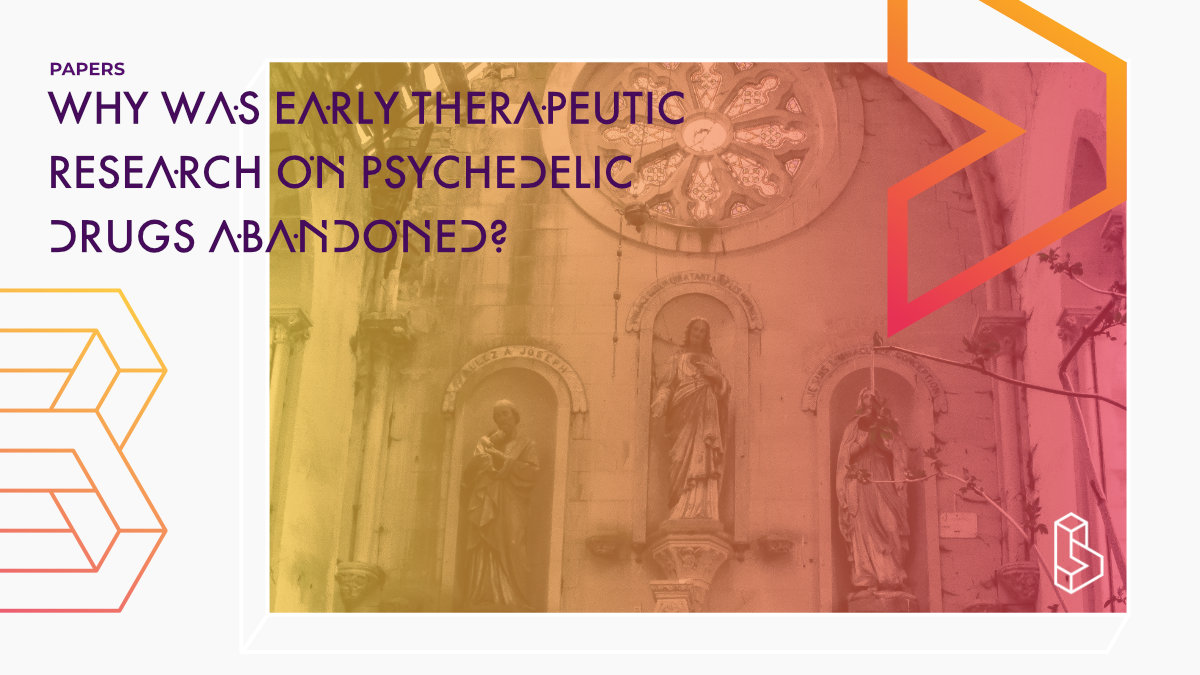This commentary paper (2021) explores what led to the abandonment of psychedelic research post-1970 in North America. Although the War on Drugs played a role, it was concluded that tighter regulation of the pharmaceutical industry, failure of psychedelic experiments to live up to expectations, and a lack of interest from the pharmaceutical industry to fund trials were all contributing factors.
Abstract of Why was early therapeutic research on psychedelic drugs abandoned?
“Background: Advocates of the therapeutic use of psychedelic drugs have argued that a promising approach to treatment was prematurely abandoned in the 1960s primarily because of Richard Nixon’s ‘War on Drugs’. This paper (1) briefly describes research in the 1950s and 1960s in North America on the use of LSD to treat alcohol dependence, anxiety in terminal illness, and anxiety and depression; and (2) discusses the factors that led to its abandonment.
Method: An analysis of historical scholarship on psychedelic research in the 1950s, 1960s and 1970s in North America.
Results: Research on psychedelic drugs in psychiatry was abandoned for a number of reasons that acted in concert. A major factor was that clinical research on psychedelic drugs was caught up in the tighter regulation of pharmaceutical research after the Thalidomide disaster in 1963. Psychedelic drugs also presented special challenges for randomised, placebo-controlled clinical trials in the 1970s that were not as positive as the claims made by their advocates in the 1950s and 1960s. Clinical research became more difficult after 1965 when Sandoz ceased providing psychedelic drugs for research and their nonmedical use was prohibited in 1970.
Conclusions: The demise of psychedelic drug research was not solely due to the ‘War on Drugs’. It was hastened by tighter regulation of pharmaceutical research, the failure of controlled clinical trials to live up to the claims of psychedelic advocates, and the pharmaceutical industry’s lack of interest in funding clinical trials.”
Authors: Wayne Hall
Summary of Why was early therapeutic research on psychedelic drugs abandoned?
Over the past two decades, there has been a revival of research on the use of psychedelic drugs to treat anxiety, depression and addiction. The results of phase 2 clinical trials suggest the need for their cautious re-introduction into psychiatric practice.
In this paper, the term ‘psychedelic’ is used to describe a class of drugs that produce thought, mood, and perceptual changes, without causing physical addiction, craving, major physiological disturbances, delirium, disorientation, or amnesia.
Find this paper
Why was early therapeutic research on psychedelic drugs abandoned?
https://doi.org/10.1017/S0033291721004207
Paywall | Google Scholar | Backup | 🕊
Cite this paper (APA)
Hall, W. (2022). Why was early therapeutic research on psychedelic drugs abandoned?. Psychological Medicine, 52(1), 26-31.

